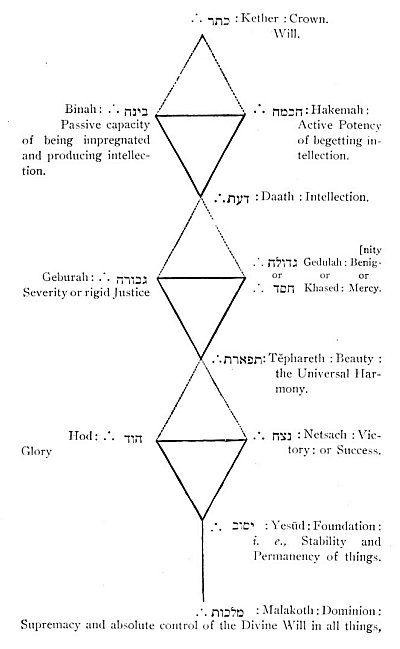Commercial greed deadens the nerves of sympathy of Nations, and makes them deaf to the demands of honor, the impulses of generosity, the appeals of those who suffer under injustice. Elsewhere, the universal pursuit of wealth dethrones God and pays
p. 299
divine honors to Mammon and Baalzebub. Selfishness rules supreme: to win wealth becomes the whole business of life. The villanies of legalized gaming and speculation become epidemic; treachery is but evidence of shrewdness; office becomes the prey of successful faction; the Country, like Actæon, is torn by its own hounds, and the villains it has carefully educated to their trade, most greedily plunder it, when it is in extremis.
By what right, the Voice demands, does a creature always engaged in the work of mutual robbery and slaughter, and who makes his own interest his God, claim to be of a nature superior to the savage beasts of which he is the prototype?
Then the shadows of a horrible doubt fall upon the soul that would fain love, trust and believe; a darkness, of which this that surrounded you was a symbol. It doubts the truth of Revelation, its own spirituality, the very existence of a beneficent God. It asks itself if it is not idle to hope for any great progress of Humanity toward perfection, and whether, when it advances in one respect, it does not retrogress in some other, by way of compensation: whether advance in civilization is not increase of selfishness: whether freedom does not necessarily lead to license and anarchy: whether the destitution and debasement of the masses does not inevitably follow increase of population and commercial and manufacturing prosperity. It asks itself whether man is not the sport of a blind, merciless Fate: whether all philosophies are not delusions, and all religions the fantastic creations of human vanity and self-conceit; and, above all, whether, when Reason is abandoned as a guide, the faith of Buddhist and Brahmin has not the same claims to sovereignty and implicit, unreasoning credence, as any other.
He asks himself whether it is not, after all, the evident and palpable injustices of this life, the success and prosperity of the Bad, the calamities, oppressions, and miseries of the Good, that are the bases of all beliefs in a future state of existence? Doubting man’s capacity for indefinite progress here, he doubts the possibility of it anywhere; and if he does not doubt whether God exists, and is just and beneficent, he at least cannot silence the constantly recurring whisper, that the miseries and calamities of men, their lives and deaths, their pains and sorrows, their extermination by war and epidemics, are phenomena of no higher dignity, significance, and importance, in the eye of God, than what things of the same nature occur to other organisms of matter; and that the fish of
p. 300
the ancient seas, destroyed by myriads to make room for other species, the contorted shapes in which they are found as fossils testifying to their agonies; the coral insects, the animals and birds and vermin slain by man, have as much right as he to clamor at the injustice of the dispensations of God, and to demand an immortality of life in a new universe, as compensation for their pains and sufferings and untimely death in this world.
This is not a picture painted by the imagination. Many a thoughtful mind has so doubted and despaired. How many of us can say that our own faith is so well grounded and complete that we never hear those painful whisperings within the soul? Thrice blessed are they who never doubt, who ruminate in patient contentment like the kine, or doze under the opiate of a blind faith; on whose souls never rests that Awful Shadow which is the absence of the Divine Light.
To explain to themselves the existence of Evil and Suffering, the Ancient Persians imagined that there were two Principles or Deities in the Universe, the one of Good and the other of Evil, constantly in conflict with each other in struggle for the mastery, and alternately overcoming and overcome. Over both, for the SAGES, was the One Supreme; and for them Light was in the end to prevail over Darkness, the Good over the Evil, and even Ahriman and his Demons to part with their wicked and vicious natures and share the universal Salvation. It did not occur to them that the existence of the Evil Principle, by the consent of the Omnipotent Supreme, presented the same difficulty, and left the existence of Evil as unexplained as before. The human mind is always content, if it can remove a difficulty a step further off. It cannot believe that the world rests on nothing, but is devoutly content when taught that it is borne on the back of an immense elephant, who himself stands on the back of a tortoise. Given the tortoise, Faith is always satisfied; and it has been a great source of happiness to multitudes that they could believe in a Devil who could relieve God of the odium of being the Author of Sin.

Moe is the founder of GnosticWarrior.com. He is a father, husband, author, martial arts black belt, and an expert in Gnosticism, the occult, and esotericism.






